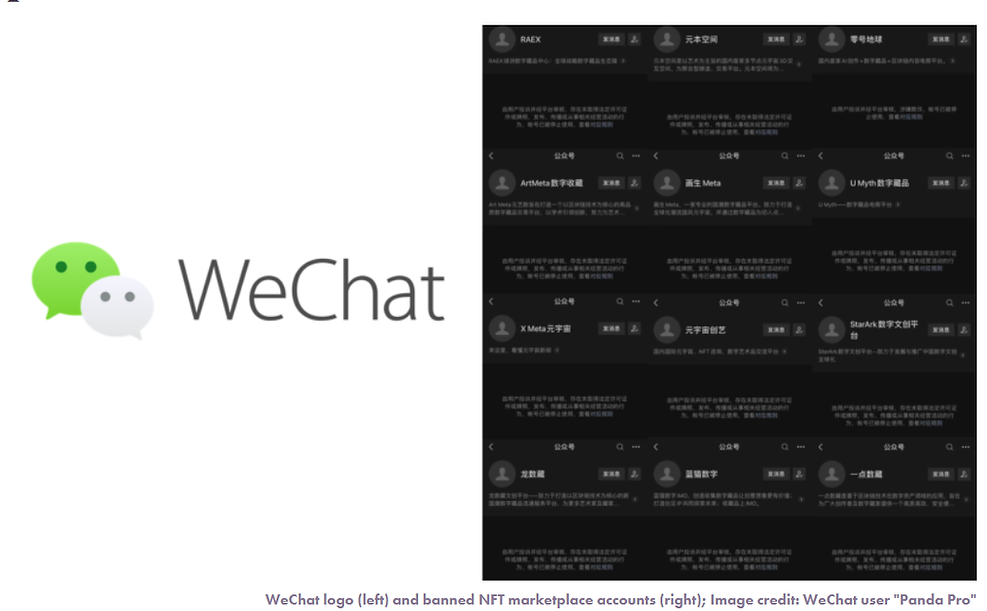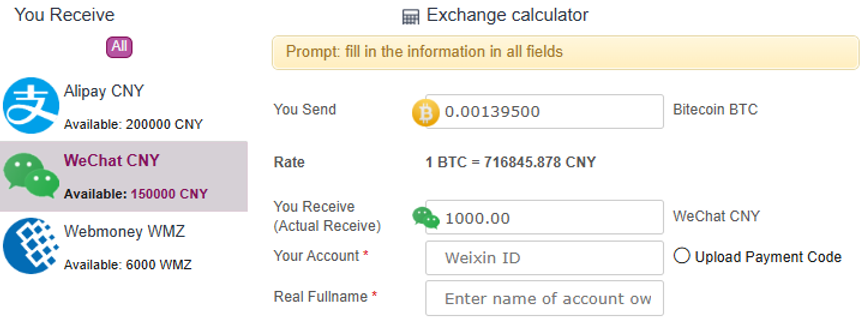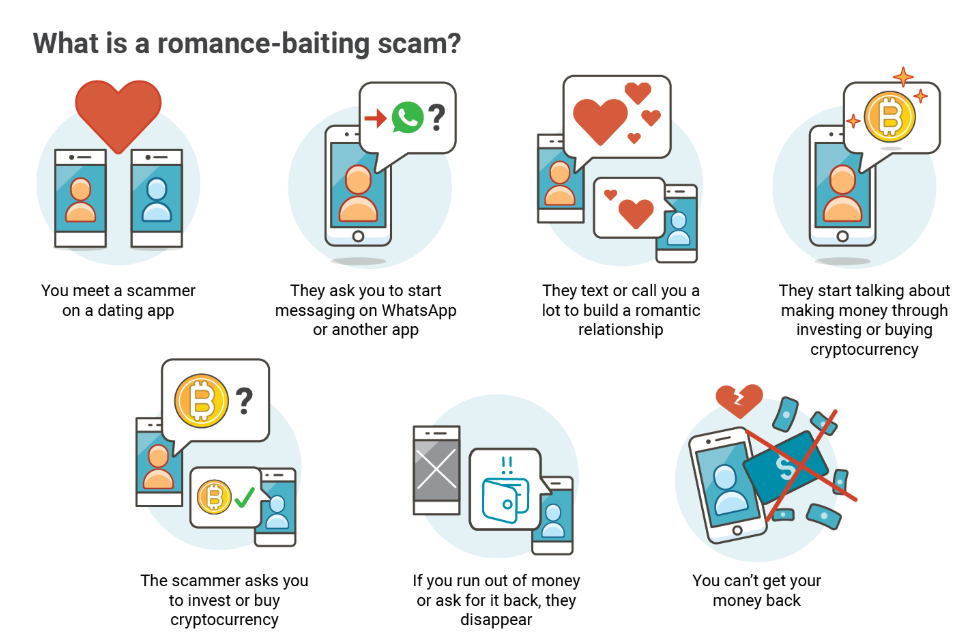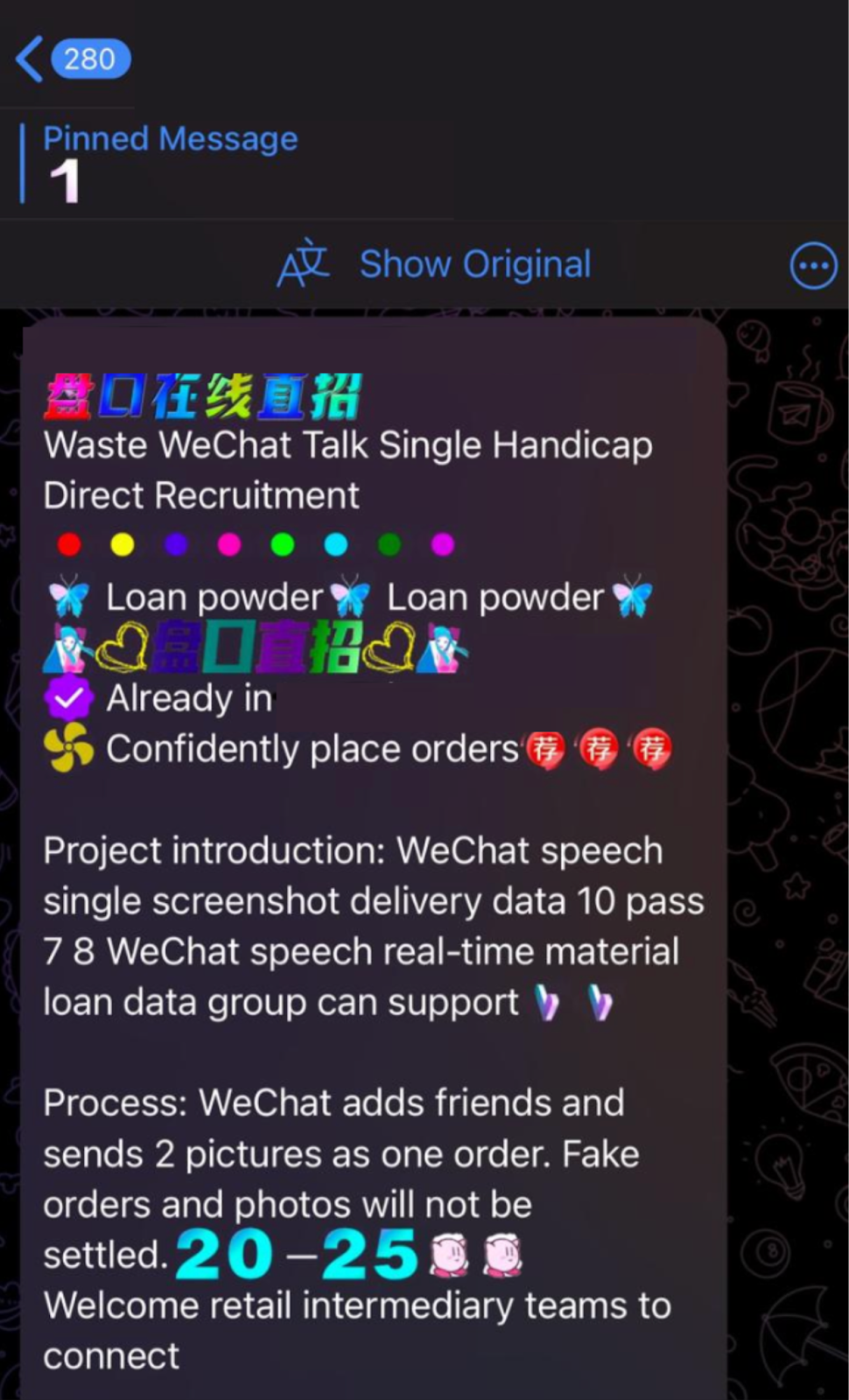WeChat, developed by Chinese tech giant Tencent, is no longer just a messaging app, it is a digital ecosystem deeply embedded into the everyday lives of over 1.3 billion users. Often described as China’s digital Swiss Army knife, WeChat seamlessly integrates messaging, payments, banking, e-commerce, and file sharing into a single platform. Though, these conveniences come with significant vulnerabilities. Over the past several years, WeChat has emerged as a preferred tool for coordinating transnational financial crimes, many of which involve the use of cryptocurrency for laundering illicit proceeds from drugs, scams, and underground remittance schemes.

While regulators and law enforcement agencies in the U.S. and abroad have become increasingly aware of the risks posed by crypto-related crimes, the off-chain infrastructures that support these operations, like WeChat, often remain opaque and beyond the reach of traditional KYT monitoring systems. This gap in oversight has created fertile ground for sophisticated criminal networks to operate with near-impunity.

The role of no-KYC and high-risk crypto exchanges further exacerbates this issue. Numerous platforms operating without adequate identity verification openly offer to exchange Bitcoin and other cryptocurrencies via WeChat, providing seamless fiat-to-crypto conversions. These exchanges significantly compound the challenges faced by law enforcement and KYT monitoring efforts, enabling illicit actors to swiftly transfer and obscure their criminal proceeds.

Screenshot from an exchange without KYC, sourced by the Nominis Intelligence Unit
Pig butchering scams have become some of the most prevalent scams pervading the crypto spaceOne of the most prolific patterns involves pig butchering scams, also known as romance-baiting scams, reaching epidemic levels across Southeast Asia. These long-con social engineering schemes typically begin with a message on WeChat or similar platforms, followed by elaborate grooming tactics that lead victims often in the U.S., Europe, or Australia to "invest" in fake cryptocurrency platforms.

These scams routinely result in losses of hundreds of millions, with the stolen assets rapidly laundered through crypto mixers, shell exchanges, and OTC brokers. WeChat plays a crucial role here, not only as the communication layer, but also as the payment coordination hub, especially through the use of QR codes and WeChat Pay.
In addition to fraud, WeChat has been directly linked to fentanyl and methamphetamine money laundering operations in the U.S. In 2025, several U.S. Attorneys General, including those from North Carolina and Colorado, issued formal demands to Tencent and WeChat’s U.S. operations, citing the platform’s use by cartel-linked operatives. The laundering schemes typically involve drug proceeds collected in U.S. cities and handed off to brokers who then coordinate international value movement via WeChat. These transactions often mirror each other across jurisdictions without touching formal banking systems, a process known as mirror remittance. Funds are swapped through informal Chinese banking channels, often involving crypto as a bridge or secondary layer of obfuscation.
Operation Chem Capture in 2023 exposed how Chinese suppliers used WeChat and Bitcoin to traffic fentanyl precursors into the U.S., with the app serving as a hub for orders, logistics, and payments. Similarly, the 2021 sentencing of Xizhi Li revealed WeChat’s role in coordinating a major drug money laundering network spanning China, Mexico, and the U.S. In both cases, encrypted messaging enabled seamless communication between cartels and crypto facilitators.

In 2025, South Carolina arrests showed that this pattern continues. Criminals used WeChat Pay, QR codes, and crypto layering to launder drug proceeds, echoing earlier federal cases. A concurrent investigation by Recorded Future confirmed that Chinese brokers still rely on WeChat to swap drug money for crypto and move value cross-border for Latin American cartels.

Screenshot from the Nominis Intelligence Unit, displaying a WeChat link shared in an illicit black market Telegram group
The Nominis Intelligence Unit often encounters WeChat links featured in illicit black market Telegram groups, which further demonstrates the major role WeChat plays in crypto-facilitated crime. Despite mounting evidence, WeChat remains beyond the reach of most regulators. Its encryption, CCP protection, and lack of cooperation leave law enforcement with limited options. KYT systems, which focus on blockchain data, often miss the off-chain coordination and fiat layers that WeChat enables.
To address this blind spot, KYT tools must evolve. Systems need to integrate messaging metadata, OSINT, and fiat-crypto bridge analysis to identify risk signals earlier.
Ultimately, holding platforms like Tencent accountable for their illicit use is imperative. Without applying pressure for transparency, WeChat will continue to power the global infrastructure of crypto-enabled crime.
WeChat Facilitated Crime: FAQs
If crypto is banned in China, how is WeChat still involved in crypto crimes?
While China has banned crypto trading and exchanges, WeChat is still widely used. Criminals use it to communicate, share wallet addresses, send payment QR codes, and organize transactions especially across borders. It’s not about trading crypto on WeChat, but using it to coordinate and move money around crypto systems off-chain.
What makes WeChat useful for laundering money with crypto?
WeChat combines messaging, payments, and file sharing in one encrypted app. This makes it easy for criminals to coordinate drug deals or scams, collect payments through WeChat Pay, and then move value using crypto ,all without using banks or traceable systems. It acts like a hidden control center for money laundering.
Can law enforcement track crypto crimes that use WeChat?
It’s very difficult. WeChat doesn’t share user data with U.S. authorities, and its encryption hides communications. KYT tools can trace blockchain activity, but they often miss the off-chain planning and payment steps that happen inside WeChat. That’s why experts are calling for smarter KYT systems and more pressure on platforms like Tencent to cooperate.
While we strive for accuracy in our content, we acknowledge that errors may occur. If you find any mistakes, please reach out to us at contact@nominis.io . Your feedback is appreciated!






.png)